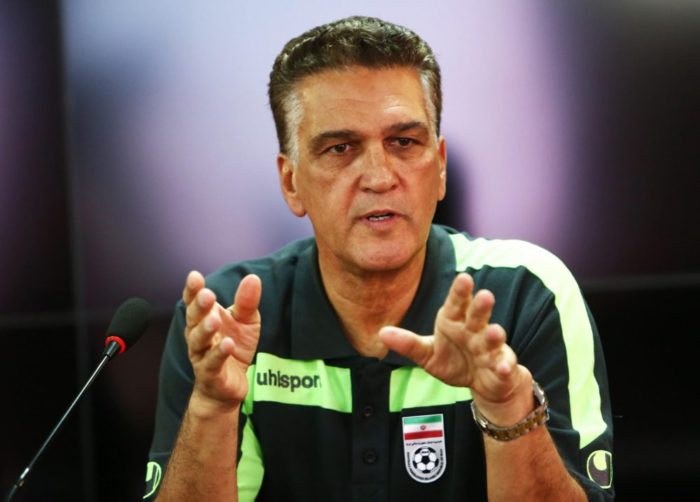A coach who knows both teams sizes up the US-Iran World Cup match

The Athletic – HARTFORD, Dan Gaspar has coached in the US national soccer team ranks and also has guided most of Iran’s players in the World Cup as the team’s top assistant from 2011-17. Yet neither the US nor Iran has requested Gaspar’s input regarding Tuesday’s match in Qatar.
Gaspar said he does not expect a call from either team, since “technology in this day and age, they know each other better than they know themselves. There is absolutely nothing the US does not know about Iran and nothing Iran does not know about the US. There are no secrets any more.”
But not everything Gaspar offers is related to data. As he said, “I might have some insight computers don’t know about.”
Such as the video Gaspar received of Iran goalkeeper Alireza Beiranvand, who was expected to be out with a broken nose.
“I suspect Ali will start in goal against the US,” Gaspar said from his Hartford home. “He’s not wearing a mask, he’s passed concussion protocols, he’s had a full training session.”
Beiranvand went down in a collision with a teammate in the opening minutes of Iran’s 6-2 loss to England in their World Cup opener. Hossein Hosseini replaced Beiranvand and was in goal for Iran’s 2-0 win over Wales.
“That is huge for Iran,” Gaspar said. “Hosseini is good but he doesn’t have the same experience or range of coverage.”
Gaspar, 69, now an assistant coach for Hartford Athletic in the USL, was on the staff of Iran coach Carlos Queiroz with teams on four continents, including the 2010 World Cup with Portugal and the 2014 World Cup with Iran. They also teamed with the South Africa national team, the New York/New Jersey MetroStars in MLS, Nagoya Grampus Eight in Japan, and Sporting CP in Portugal.
Since a draw would clinch qualification from Group B for Iran, there is speculation that Queiroz will set up his team in lockdown mode. Gaspar thinks not.
“He adjusted the strategy to five backs against one of the very best teams in the world [England], and I would be very surprised if he did that,” Gaspar said. “I believe he will let the players loose, give them freedom to play. I don’t believe he will constrain them as much as he typically does.
“This is a team that is battled-tested in the World Cup. Most of them are playing in their third World Cup and are at the peak of their career. They’ve played against world-class teams — Spain, Portugal, Argentina, Uruguay, Senegal — and they are no longer intimidated by these teams.
“[The US] is one of the youngest teams in the World Cup, and you can’t duplicate the intensity of a World Cup, so they are being tested on the world stage for the first time. This World Cup will prepare them for 2026.”
Gaspar said Iran is vulnerable in central defense because of a lack of speed, and the US has the talent edge in most positions, except striker.
“The US should avoid the flanks, go to the center,” Gaspar said.
Iran has the advantage in experience, plus sense of purpose. The US is approaching this as a win-or-go-home game. In elimination situations, countries such as Argentina use the term “ganar or morir” (“win or die”), and Iran’s mentality is similar.
“No one is more passionate about defending its culture than Iran,” Gaspar said. “With sanctions and the sacrifices they have to make to get support, all the obstacles they have to fight, the players will crawl off the pitch as a result of the effort they give.
“Will the US match that effort? I don’t know, but I hope they will. The US team, everyone singing the national anthem, that tells me the culture has improved.”
Before the World Cup started, Gaspar thought Iran’s experience would pay off in advancement to the second round. But Team Melli has been caught up with the turmoil in their country, many calling for them to boycott the World Cup. Voria Ghafori, a player Gaspar coached with the national team, was arrested recently for supporting protests against the Iran government.
“There is so much pressure on them, knowing if they do speak out there could be consequences to them, their families,” Gaspar said. “The government controls the Persian League, and they can make life miserable. That’s why I feel for players having that sort of pressure. People know they can’t speak out.”




